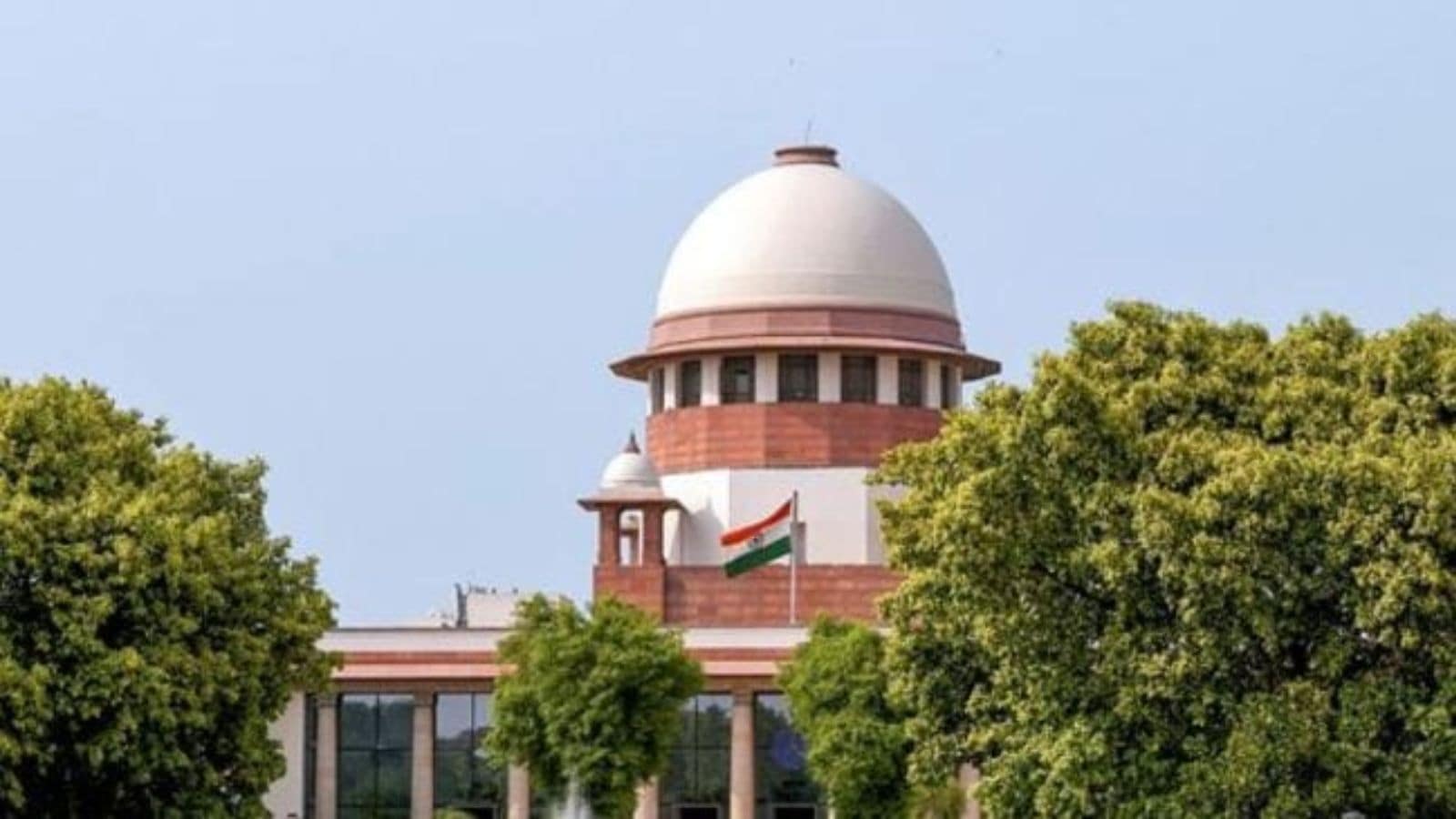SC ruling on sub-categorisation in Scheduled Caste reservation ensured ‘most marginalised received fair share’: CJI
In a speech at the Oxford Union, CJI B R Gavai described the Constitution of India as ‘a quiet revolution etched in ink’ and said it ‘carries within it the heartbeat of those who were never meant to be heard’.
 A bench of Justices Ujjal Bhuyan and Manmohan was informed by the state government's counsel that the officer was taken into custody and released on Tuesday at 5 pm.
A bench of Justices Ujjal Bhuyan and Manmohan was informed by the state government's counsel that the officer was taken into custody and released on Tuesday at 5 pm.
Chief Justice of India B R Gavai asserted on Tuesday that the objective of the Supreme Court ruling in favour of sub-classification within Scheduled Castes for the purposes of reservation was “to ensure that the most marginalised within marginalised groups receive their fair share”.
Speaking at the Oxford Union on the topic, ‘From Representation to Realization: Embodying the Constitution’s Promise’, CJI Gavai referred to the August 1, 2024, ruling of the Supreme Court and said “this was not to question the relevance or success of reservations, but to ensure that the most marginalised within marginalised groups receive their fair share”.
The 6:1 majority decision overruled the 2004 judgment in E V Chinnaiah vs State of Andhra Pradesh that had held that Scheduled Castes constituted a homogeneous group and cannot be sub-categorised.
CJI Gavai said that “for India’s most vulnerable citizens, the Constitution is not merely a legal charter or a political framework. It is a feeling, a lifeline, a quiet revolution etched in ink.”
Recalling his journey from a municipal school to the office of the Chief Justice of India, CJI Gavai said that the Constitution “has been a guiding force”. “This is what the Constitution did. It told the people of India that they belong, that they can speak for themselves, and that they have an equal place in every sphere of society and power,” he added.
The CJI said that “the Constitution of India carries within it the heartbeat of those who were never meant to be heard, and the vision of a country where equality is not just promised, but pursued. It compels the State not only to protect rights but to actively uplift, to affirm, to repair”.
CJI Gavai said that Dr B R Ambedkar “saw representation as a necessary check—a system of constitutional checks and balances—to guard against the arbitrary power and social hegemony of dominant caste and class groups”.
“He understood that in a society where inequality had been systemically entrenched, change would not come naturally or voluntarily. Therefore, the constitutional text itself had to carry the weight of a mandate— a mandate to protect, to empower, and to ensure representation,” he added.
CJI Gavai said that the “constitutional guarantees” on representation “reflect a vision of substantive equality, which goes beyond formal equality and requires the State to take positive action to correct historical disadvantages”.
The CJI added, “The true beauty of Indian democracy lies in this: even as we commemorate 75 years of the Constitution, we continue to reflect, renew, and reimagine how to deepen and expand the meaning of representation. Just last year, Parliament passed a constitutional amendment to provide political reservations for women in Parliament and state legislatures.”







